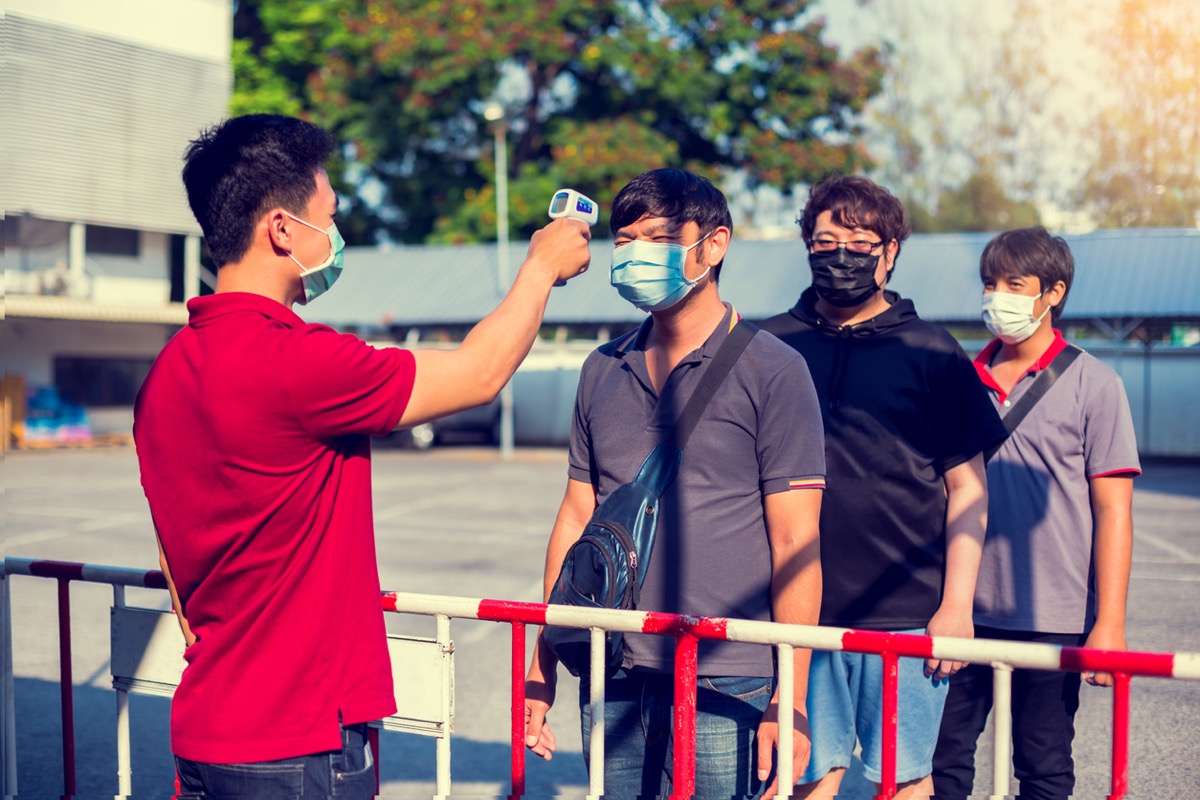While those forehead-scanning no-contact thermometers may be becoming a more common sight these days, they really only serve to put your mind dangerously at ease, James Hamblin, MD, writes for The Atlantic. “The practice is sort of like spraying down the sides of buildings, showering football players in hand sanitizer, or deep cleaning an office carpet,” Hamblin notes. “These things might make us feel safer, but they may not keep us safe if they actually cause us to let our guard down.” Temperature checks are the current standard for admission to anywhere from a school or an office building to a courthouse or boarding a flight. But, as Hamblin points out, there’s little evidence to support that they’re helpful in stopping the spread of COVID-19. That’s largely because symptoms can vary greatly from patient to patient, and many people infected with coronavirus may not actually have a fever. A recent paper published in the journal Travel Medicine and Infectious Disease found that temperature checks are particularly unreliable among a younger demographic. The researchers evaluated 84 men with COVID-19 with a median age of 21, taking their temperatures twice a day for two weeks starting on the day that each patient was diagnosed. With one exception, none of patients had a fever for longer than three days. In fact, 83 percent of the patients evaluated never even developed a fever at all.ae0fcc31ae342fd3a1346ebb1f342fcb Even widening the demographics, it’s been proven that a fever is not always a symptom among COVID-19 patients. A July study in the Centers for Disease Control and Prevention’s (CDC) journal Morbidity and Mortality Weekly Report revealed that 20 percent of 164 symptomatic COVID-19 patients, whose median age was 50, did not have a fever. RELATED: For more up-to-date information, sign up for our daily newsletter. Other experts take issue with the fact that an elevated temperature may not be the result of coronavirus. A long list of health issues—including everything from the flu and food poisoning to Crohn’s disease and sunburn—could be the cause, meaning that temperature checks could very well put out people who don’t have COVID-19, Bruce Y. Lee, MD, wrote for Forbes. These factors have led to a debate as to whether the now-common temperature check does what it’s intended to do. “There’s never been any data to show that it’s prevented any transmissions [of COVID-19],” Eric Topol, MD, executive vice president of Scripps Research, told Popular Science. “The temperature check is of no value. It should be abandoned.” Hamblin agrees, writing: “If people are reassured by a fever check and compromise on the basics—wearing a mask, distancing, hand-washing—they put themselves and others at risk. This test has no ability to reassure people, but a real ability to mislead.” Even the CDC, which doesn’t outright dissuade business owners from using temperature checks, contends that they do not provide sufficient protection. Their general guidelines warn that “screening and health checks are not a replacement for other protective measures such as social distancing.” And for more on why your experience with coronavirus may be different from others, check out Dr. Fauci Says This May Already Be Keeping You Safe From COVID.
